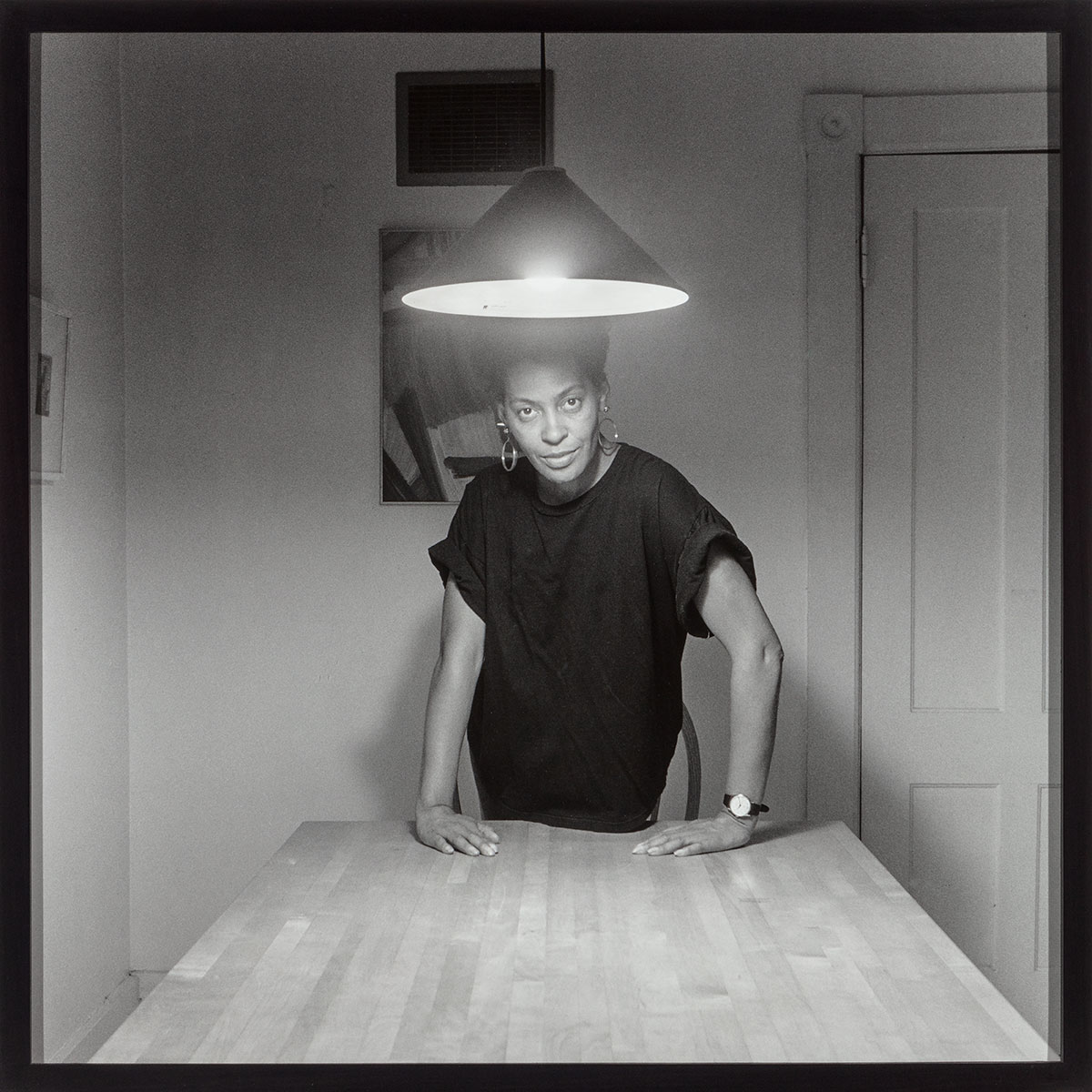
Carrie Mae Weems (b. Portland, Oregon, 1953)
For over forty years, Carrie Mae Weems has explored the intersection of personal experiences and the institutional and societal narratives that impact people’s lives. Working in a variety of media, including photography, text, textiles, audio, installation, and video, the artist challenges the status quo by examining established belief systems. She began her first major body of work, Family Pictures and Stories, 1978–84, while earning her MFA at the University of California, San Diego. The series is comprised of photographs and accompanying text, which is a hallmark of Weems’s practice.
Photographing different generations at work, at home, and in community, the artist creates a complex portrait of middle-class American life. While familial and approachable, the work directly confronts a mid-twentieth century U.S. Department of Labor report critiquing the “weaknesses” of the African American family unit. Here, Weems demonstrates the vitality, integrity, devotion, and nuances of her community through a compelling commingling of the personal with the political.
In her Kitchen Table Series, 1990, Weems took on the dual role of photographer and model to explore the complex realities of women’s lives and the ways Black women in particular have been represented culturally in the United States—working within and pushing against stereotypes. In the series, Weems is the protagonist in a story that unfurls through images and text about a woman and her relationships with friends, her child, her lover, and her sense of self. The setting for each carefully staged photograph is a simple wooden kitchen table under a hanging light fixture that can suggest revelation or interrogation, depending on the nature of the scene. Each image is captured from the same perspective, at the far end of the table, so that the viewer occupies a voyeuristic, even participatory role in the domestic drama.
The series, which includes twenty photographs and fourteen text panels, is represented in Diaries of Home in three images that feature the artist as the sole figure around the kitchen table. The works shown here, from the Modern’s collection, are among the last in the narrative sequence: they depict the woman, who is now alone. The room that situates the kitchen table scenes subtly changes from image to image, in parallel with the inner life of the woman. The birdcage in the background of the final photograph could signify a domesticated replacement for the woman’s lover or an empty nest. The many and simultaneous roles Weems embodies in these photographs—matriarch, mother, friend, caretaker, partner, self-soother, a self-reliant, complex sexual and emotional being—defy the monolithic portrayals of Black female experiences that have proliferated in the media. In this powerful, groundbreaking series, the artist gathers important issues of race, gender, class, community, and politics around the table for all of us to contemplate.
Carrie Mae Weems, Untitled (woman standing), 1990. Gelatin silver print with text panels. 27 ¼ ×27 inches. Collection of the Modern Art Museum of Fort Worth, Museum purchase made possible by a grant from The Burnett Foundation. © Carrie Mae Weems. Courtesy of the Artist and Gladstone Gallery, New York, Fraenkel Gallery, San Francisco, and Galerie Barbara Thumm, Berlin

